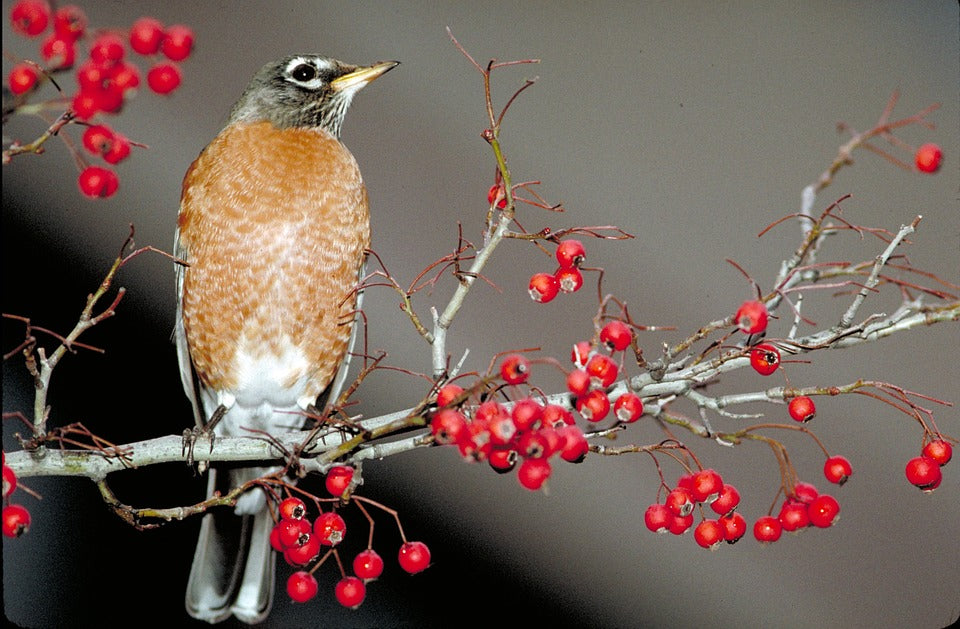Offer
Provide additional details about the offer you're running.
Provide additional details about the offer you're running.
Provide additional details about the offer you're running.

Given our somewhat unseasonably warm winter thus far for us at least in Eastern Ontario, we not only have been treated to a number of different birds, knocked off their course in one way or another, you also might notice a species or two staying for the winter. One of those species is the American Robin.
The ironic part about this particular species is that its appearance is typically the telltale sign that spring has arrived for most of us in northern climates. By the time March and April roll around, many of us our dying for the opportunity to spot a robin foraging for earthworms on our front lawns.
The fact remains that for the most part, the majority of these birds still do migrate south during the winter months, but researchers and observers have definitely noticed that the number of robins that decide to tough out the winter months is on the rise.
A quick glance at eBird displays that many birders are still identifying and reporting American Robin sightings in much of Canada as well as here locally for us in the greater Ottawa area. The map below denotes each location in which an American Robin has been spotted during December of 2015 and so far this year in January.

Why Do Robins Stay?
The answer to this question is fairly cut and dry. Robins will remain in any location (this goes for the spring and summer months as well), so long as there is a reliable food source present. Oftentimes when spotting a robin or a group of robins, a food source such as a fruit tree of some kind is not far away. These birds feast on year-round offerings such as crab apples and mountain ash berries and will usually also be somewhat close to a reliable water source, usually a nearby stream, river or lake.
One thing that also concerns a number of people regarding seeing a bird they so closely resemble to spring and summer is its ability to remain warm during the frigid cold of the winter months. Much the same as many other bird species, so long as these birds remain to have a reliable amount of food, they are more than able to maintain their body heat, helping them brave the extreme cold.
High Quality Blend